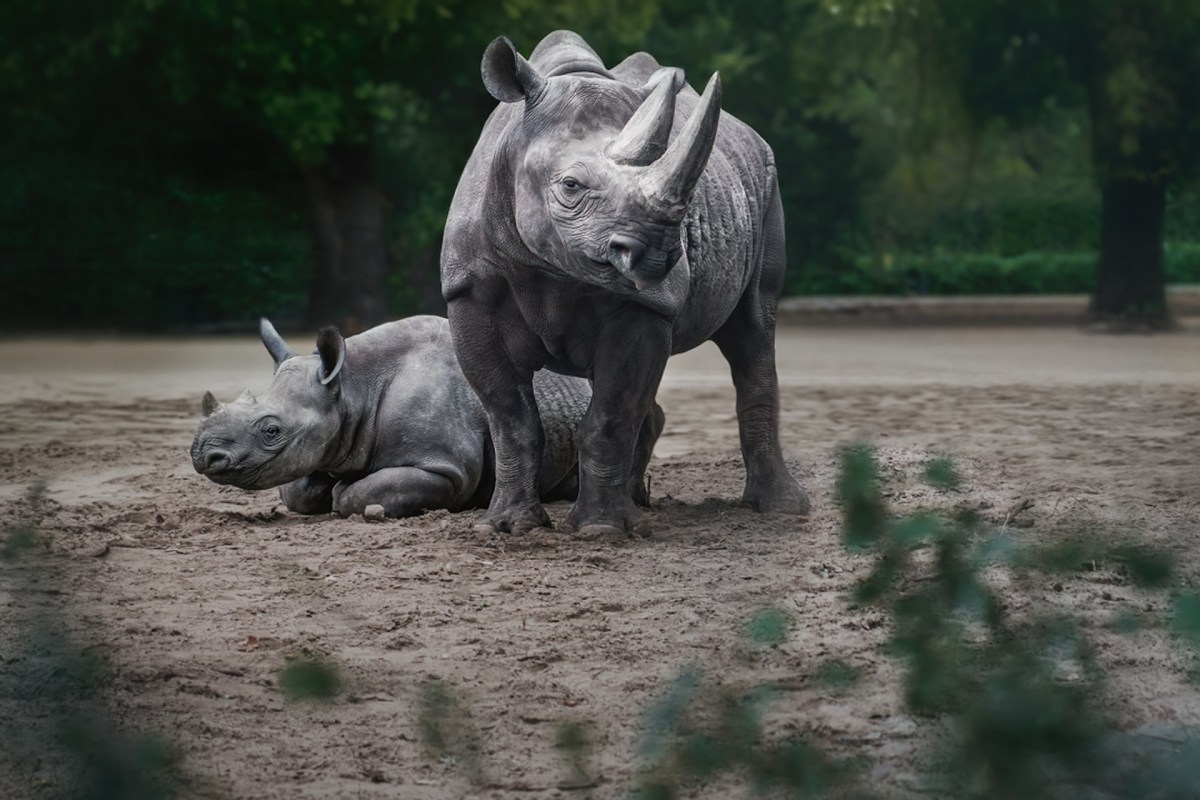While tenacious conservation efforts across Africa have saved black rhinos from the verge of extinction, the species is still considered critically endangered and faces ongoing threats from illegal poaching.
What happened?
As detailed by Reuters, the South African government announced that 499 rhinos were poached in 2023, 51 more than in 2022. According to the outlet, nearly half of the black rhino population and most near-threatened white rhinos live in South Africa.
Poaching rings target rhinos for their massive horns, which are highly valued in traditional Chinese medicine and other East Asian countries for jewelry.
Reuters reports that, according to a statement from South Africa's Department of Forestry, Fisheries, and the Environment, poachers killed 406 rhinos on state-run properties and 93 on privately owned farms and animal reserves in 2023.
"The pressure again has been felt in the KwaZulu-Natal (KZN) province with Hluhluwe-iMfolozi Park facing the brunt of poaching cases," Environment Minister Barbara Creecy told Reuters.
"While KZN recorded 49 arrests and 13 firearms seized, multi-disciplinary teams continue to work tirelessly in an attempt to slow this relentless pressure," she added.
Per France 24, 307 rhinos perished in Hluhluwe–Imfolozi Park alone last year because of poaching, according to the government.
Why is the sharp increase in rhino poaching concerning?
According to the World Wildlife Fund, black rhinos have made a tremendous recovery in the last few decades, growing from fewer than 2,500 individuals to over 6,000 today.
Since 1961, WWF has worked in collaboration with governments and communities in Namibia, Kenya, and South Africa to save black rhinos from extinction and better protect white rhinos.
It would be a tragedy to lose such a majestic species to the illegal wildlife trade, especially when so many agencies and government officials have spent countless hours trying to save them.
"There isn't an overnight solution, but with a rhino poached every 17 hours in South Africa, we can't afford to lose any more time," Jo Shaw, conservation charity Save the Rhino International's CEO, told France 24, highlighting the urgent need for more resources to take down poachers.
As Mongabay reports, the warming climate also puts them in a precarious position. Their habitats are becoming increasingly hotter and drier, limiting their access to food, water, and shade.
Rhinos play an essential role in the web of life and provide local communities with a source of income through ecotourism, especially in remote portions of Namibia.
A world without rhinos would be an imbalanced, less resilient one.
What's being done to help rhinos?
France 24 explained that government officials have ramped up security, especially in Kruger National Park, a hotspot for poaching activities. As a result, the park reported a 37% decrease in rhinos poached in 2023 compared to 2022.
In addition, Reuters reports that South Africa's environment ministry doubled down on efforts to train and counsel rangers about how to deal with poachers.
Even if you don't live in Africa, you can still support conservation efforts by donating to charities and nonprofits that work to protect rhinos. Also, educating yourself and others about the changing climate and the importance of sustainability can make a positive impact on rhinos, even from thousands of miles away.
Join our free newsletter for cool news and cool tips that make it easy to help yourself while helping the planet.









